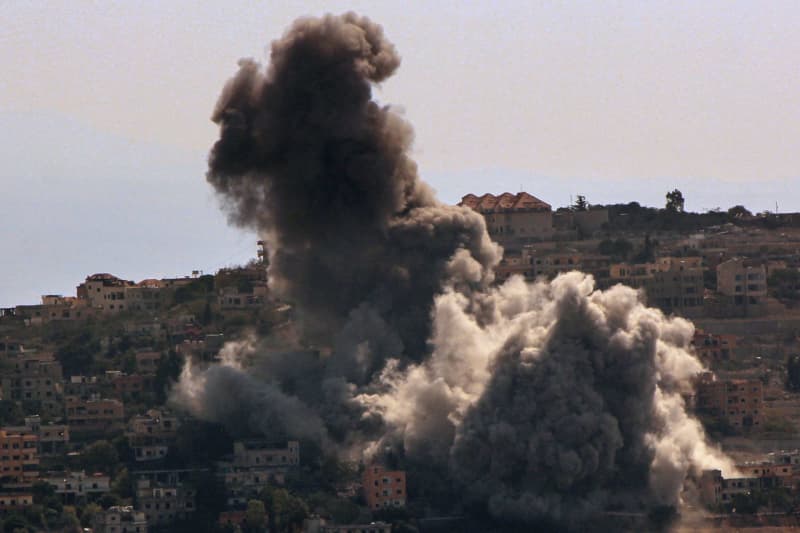Escalation of Conflict in Southern Lebanon and Northern Israel
The ongoing conflict between Israel and Hezbollah intensified recently, with the Israeli army reporting a significant escalation in its ground offensive in southern Lebanon. Simultaneously, Hezbollah retaliated by launching a barrage of missiles targeting northern Israel, including the Galilee region and Haifa, marking one of the most extensive rocket attacks on the port city since hostilities began. Of the approximately 180 rockets fired, most were intercepted by Israeli defenses, but some struck suburban areas, leading to heightened tensions and air raid alerts near the border. This military exchange underscores the fragile security situation in the region, as both sides prepare for further confrontations.
In the course of the fighting, Israeli ground troops successfully captured a Hezbollah military post near the town of Maroun al-Ras, a significant territorial gain that was confirmed by both Israeli and Lebanese security sources. The incidence also raised alarms within the United Nations, as clashes occurred in proximity to UN peacekeeping forces, heightening concerns over the safety of these personnel. UNIFIL’s spokesperson highlighted the risk faced by Blue Helmets due to ongoing hostilities, while the UN Secretary-General indicated that Israeli forces had vacated a specific area in close proximity to their position.
To manage the escalating conflict, the Israeli Defense Forces (IDF) deployed an additional division to southern Lebanon, joining three others that are already engaged at various points along the front. This development signifies Israel’s strategy to assert control over the area, making it difficult for Hezbollah to operate freely. The group, which has conducted regular attacks against Israel over the past year, maintains that its actions are in solidarity with Hamas, further complicating the situation and resulting in casualties on both sides as the violence continues unabated.
In the backdrop of the intensified exchanges, Israel’s Defense Minister Yoav Gallant reported that the head of Hezbollah’s Executive Council, Hashem Safieddine, is presumed dead following a recent Israeli attack in Beirut. This incident coincided with Israeli assertions that Hezbollah’s leadership is severely compromised, suggesting a strategic advantage for Israel. Prime Minister Benjamin Netanyahu echoed these thoughts, claiming the targeted elimination of numerous terrorists, including senior figures in Hezbollah, which could potentially create a power vacuum within the organization and, in turn, affect Hezbollah’s operational capacity.
Despite the ongoing hostilities, Hezbollah’s deputy leader, Naim Qassem, expressed a willingness to engage in ceasefire negotiations. He indicated support for parliamentary efforts led by Nabih Berri, a Hezbollah ally, to broker a truce. However, Qassem emphasized the group’s readiness to continue fighting if Israeli attacks persisted. This duality reflects the tension between the desire for a peaceful resolution and the determination for military engagement, illustrating the complex dynamics between the two sides amid escalating hostilities.
The humanitarian implications of the ongoing conflict have drawn concern from international organizations. The situation in Lebanon, where over 2,100 casualties have been reported since the resurgence of confrontations, mirrors the tragic realities faced by Gazans amid conflict. UN representatives and humanitarian leaders have warned that Lebanon could experience a similar fate if the violence continues. With reports of mass displacement and increasing civilian casualties, efforts to provide humanitarian aid, such as food and medical supplies, are crucial. Efforts by organizations like the German Red Cross aim to address some of the medical needs emerging from this deteriorating situation, highlighting the urgent requirement for international support in averting a humanitarian crisis in the region.

